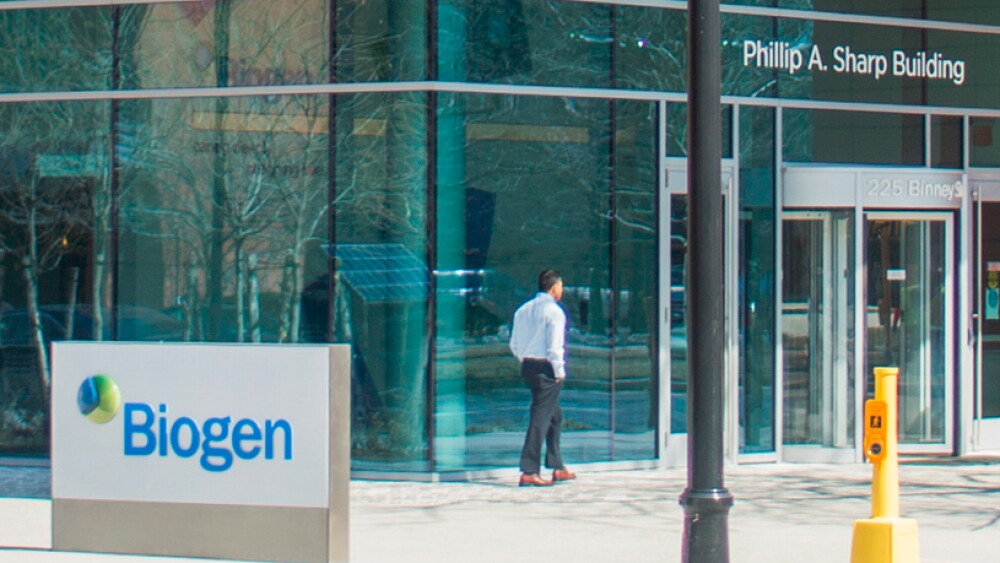April 27, 2017
By Alex Keown, BioSpace.com Breaking News Staff
BOSTON –Biogen ’s former Chief Executive Officer George Scangos announced his retirement from the company in July 2016. When he left the company in December, he walked away with a final year’s total compensation worth $32.5 million.
For his final year, Scangos earned $17.7 million in compensation, but then he also garnered $14.8 million from a vesting of restricted stock as well as a severance deal of $7.2 million, the Boston Business Journal reported this morning, citing a proxy filed by the company with the U.S. Securities and Exchange Commission.
Scangos left Biogen in the hands of Michel Vounatsos, the company’s new CEO, who took over in December. During the J.P. Morgan Healthcare Conference earlier this year, Vounatsos said the company will bolster its existing pipeline, which he said was very deep, as well as look to make deals for products being developed by other companies. Earlier this week, Biogen began what could be the first of many deals to bolster that pipeline. On April 24, the company plunked down $300 million in upfront money for Bristol-Myers Squibb ’s antibody, BMS-986168. BMS-986168 targets extracellular tau, which are the proteins that form tangles in the brain associated with Alzheimer’s disease and other neurodegenerative disorders such as progressive supranuclear palsy.
The deal with BMS appears to be the first of many. As BioSpace reported, Michael Ehlers, head of Biogen’s research and development, said that in addition to neurodegenerative disease, the company is also considering striking deals for chronic pain and eye disease.
Earlier this week, Biogen released its first quarter report for 2017, which showed revenue of $2.8 billion, a 3 percent increase over the previous year. Revenue growth was bolstered by its multiple sclerosis drug Tysabri, which grew by 14 percent over the previous year.
The company closed out 2016 with the U.S. Food and Drug Administration granting approval for its spinal atrophy drug Spinraza, the first drug ever approved for the disease. Spinraza is an antisense oligonucleotide (ASO) that is designed to alter the splicing of SMN2, a gene that is nearly identical to SMN1. There are an estimated 9,000 to 25,000 SMA patients in the United States, according to the SMA Foundation. Spinraza was approved with a broad use label for SMA Types 1, 2, and 3.
Scangos did not stay retired for long. In January, Scangos resurfaced across the country in San Francisco at the helm of startup Vir Biotechnology, Inc. The new company will “apply immune programming at an unprecedented scale” to develop treatments and preventions for “challenging infectious diseases.” In its coming-out announcement, the company said it will used breakthroughs in immune programming to manipulate pathogen-host interactions. Vir is adopting a broad technological portfolio, including the viral vectors obtained through the acquisition of TomegaVax, Inc.





